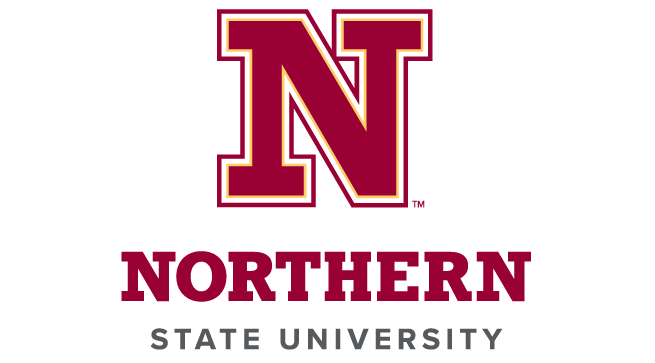Northern State University
Higher Education Opportunity Act Annual Disclosure Letter
NSU Students,
It is important for you to be aware of the laws and policies concerning the use of copyrighted material, especially digital material – music, movies, software, etc. As part of our commitment to raise awareness on these and other issues concerning your online safety and as required by the Higher Education Opportunity Act of 2008, we want to take this time to provide additional information pertaining to copyright.
All users of the network, including the Internet, at Northern State University are required to abide by and comply with all state and federal laws and SD Board of Regents and NSU policies governing copyrights and trademarks. The use of copyrighted material may require the permission of the copyright owner. The absence of a copyright notice or symbol on a work does not denote a lack of copyright. Copyrighted works can include, but are not limited to, text, graphics, music, movies, presentation and photographs.
Copyright infringement is the act of exercising, without permission or legal authority, one or more of the exclusive rights granted to the copyright owner under section 106 of the Copyright Act (Title 17 of the United States Code). These rights include the right to reproduce or distribute a copyrighted work. In the file-sharing context, downloading or uploading substantial parts of a copyrighted work without authority constitutes an infringement.
Penalties for copyright infringement include civil and criminal penalties. In general, anyone found liable for civil copyright infringement may incur either actual damages or “statutory” damages affixed at not less than $750 and not more than $30,000 per work infringed. For “willful” infringement, a court may award up to $150,000 per work infringed. A court can include other costs and attorneys’ fees. For details, see Title 17, United States Code, Sections 504, 505. Willful copyright infringement can also result in criminal penalties, including imprisonment of up to five years and fines of up to $250,000 per offense. For more information, please see the web site of the U.S. Copyright Office at www.copyright.gov, especially their FAQs at http://www.copyright.gov/help/faq.
In addition, we would like to remind you that Northern State University’s policy expressly forbids the sharing or serving of copyrighted material without the proper consent of the author. Failure to comply with this policy may result in restriction or loss of University network access from the identified computer and/or disciplinary action through the Office of Student Affairs.
Should you infringe on a copyright while using a University network, the University will be notified with the specific information regarding the work infringed and enough information to identify you specifically on the network. Actions outlined in the NSU HEOA Peer-to-Peer File Sharing Policy will be taken.
There are many alternatives to illegal file sharing and downloading, thereby avoiding all the civil, criminal, and policy entanglements. One of the best sources for legally downloadable online content is http://www.educause.edu/legalcontent. You can also visit NSU’s site for legal alternatives at Peer-to-Peer File Sharing.
For more information, visit Peer-to-Peer File Sharing.
Thank you.
Sean Blackburn, Dean of Students
Debbi Bumpous, Vice President of Technology/Chief Information Technology Officer
